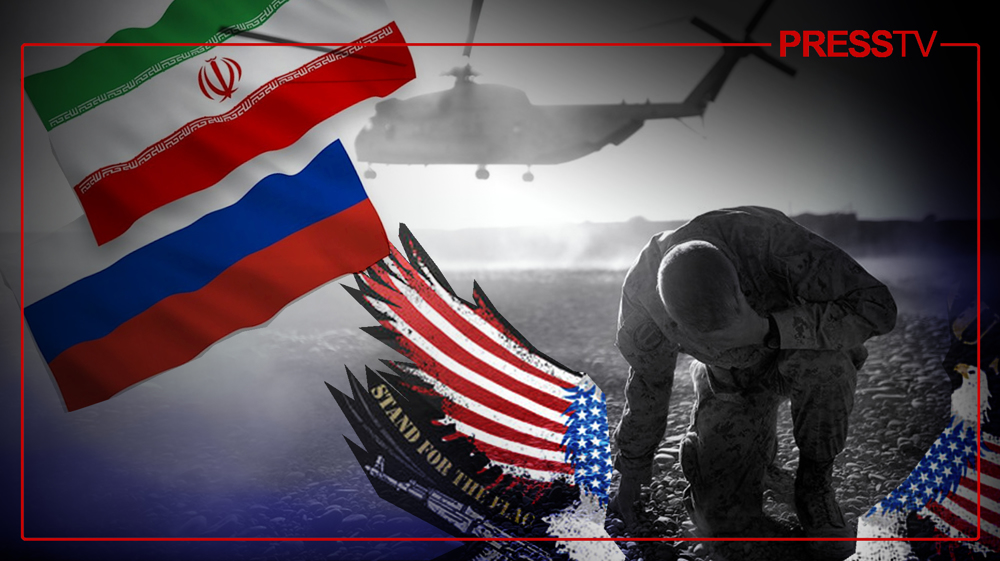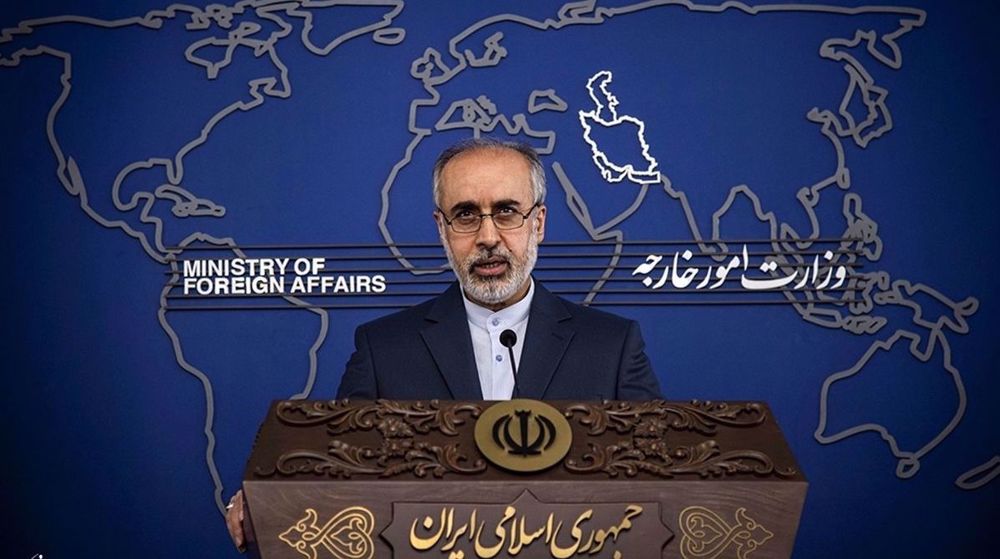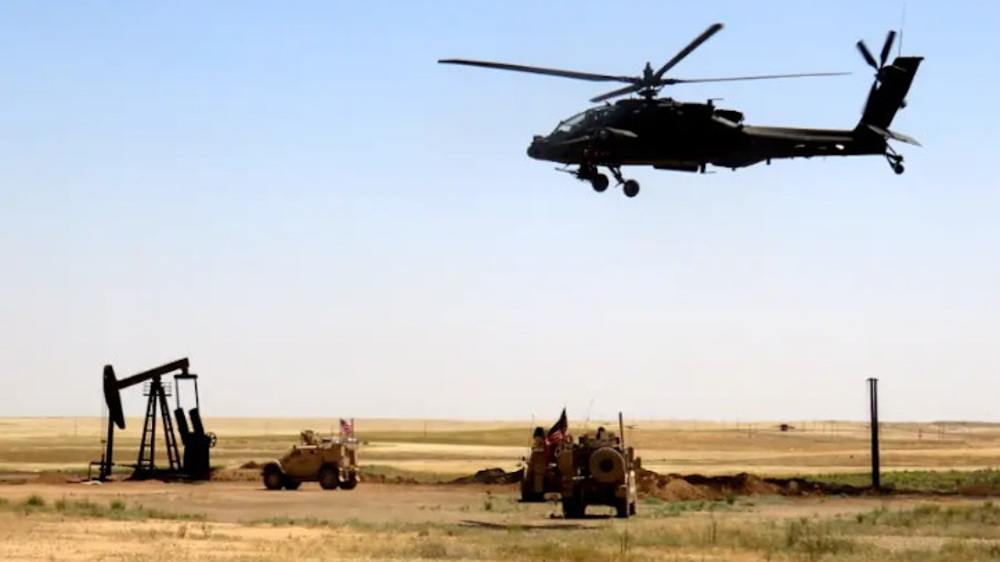Debunking the myth of US military supremacy, once again – Part II
By Ramin Mazaheri
The first part of this article discussed how Russia’s recently reclaimed military supremacy should be viewed as the continuation of a historical trend that was acknowledged as recently as the 1980s, and how the expeditionary/for-profit view of the war of the US laid a cracked foundation upon which their supremacy in military technology and strategic planning could never rest comfortably for long.
In short, ideologically reactionary and morally unsound doctrines have finally ended where they could only end: with inferior military technology and battlefield results for the US.
Russian military analyst Andrei Martyanov, writing in his groundbreaking 2018 book “Losing Military Supremacy: The Myopia of American Strategic Planning” wrote what willfully blind, jingoistic, outdated Western commentators won’t admit and often cannot even grasp:
“In both Donbas and especially in Syria, Russia called the American geopolitical and military bluff. … A multipolar world today is not some political theory anymore, it is a fait accompli….”
Why do so many Westerners struggle to understand the new political realities created by the new generation of Russian military technology over the past decade?
It can be traced to the common Western failure to admit the objective reality that the unrest in Ukraine started in 2014 and not in 2022. Failure to accept this means ignoring an era when the military universe changed.
As Martyanov writes: “A true systemic shock came with the revelation of Russia’s Electronic Warfare capabilities in 2014 in Crimea, and later in Donbas. This capability was superior to anything the United States ever had at its disposal. The conflict in Syria only confirmed,” via jamming or destroying two Daesh drone attacks on Russian military bases, that Russia has escalation dominance over NATO in electronic warfare capabilities.
Though the Western mainstream media, so very intertwined with their military-industrial-corporate complex, can’t grasp it or print it, it was proven to the world that NATO lacked any equipment, tactics or techniques to counter what everyone thought was unthinkable: a NATO enemy with the technological expertise to degrade US battlefield communications.
The US needs a “clean”, video game-like environment to succeed, but that has obviously not been the case in the Donbas for almost a decade.
“It took a Western-inspired bloody coup in Ukraine in 2014 to finally dispel all the mythology about modern warfare, with Kiev and LDNR (Luhansk People's Republic and Donetsk People's Republic) forces engaged in brutal full-contact combined arms combat in the Donbas region,” writes Martyanov.
“With that, after almost 25 years of doctrinal sleepwalking and experimentation, the fundamental constant of Russian geopolitical thinking - that the combined West was a real threat - returned to Russia’s political and cultural discourse. … Far from being clean, the clash between the armed forces of Ukraine and the Donbas formations produced results which completely overturned all American warfare assumptions of the previous 20-plus years.”
As expounded in the first part, after World War II, the United States suffered from moral/doctrinal errors which directly explain how it took a wrong path which wound up with them losing military technological supremacy to Russia.
The errors are that weapons are primarily made for commercial sale and to inefficiently produce a few domestic jobs, that war is primarily expeditionary and not for national defense, and that their ideology is so globally appealing that they will be willingly received as heroes wherever they invade and that the era of conventional warfare between nations is over.
Russia has not yet won in Ukraine, but they did play the decisive role - along with Iran - in the unexpected victory of Syria against the West and its terrorist proxies.
This is something that gets willfully ignored - like seemingly all US military losses since World War II - but the Russian military advancements unveiled there have not been countered and are not expected to be countered for decades.
New Russian military technology changes the world, provokes 3rd Red Scare
In October 2015, the Russian Navy launched cruise missiles against the Western-backed Daesh terrorist group from the Caspian Sea. This openly demonstrated not just Russia’s technological achievements but their will to use it.
Their bravery was surely augmented by their newfound knowledge - first grasped in the Donbas, but now on display for the world to see - of the myth of Western military supremacy.
Above all, as Martyanov notes, five main conclusions were to be drawn from this emphatic end to a one-sided, “clean” war:
1) The US military now has to deal with actual peers in conventional warfare.
2) The US advantage in electronic warfare is no longer supreme, which will now force them to fight in partial or complete electronic blindness.
3) The US will now encounter superior combat technologies ranging from missiles to artillery to armor.
4) The US will encounter air defense systems that make the main pillar of US military power - their Air Force - much less effective.
5) For the first time in its history, the US must now deal with the fact that its supply lines, communications, assets and rear areas can be targeted by long-range subsonic, supersonic and hypersonic missiles.
While the 15,000 deaths in the Donbas from 2014-22 were shamefully ignored by the West until 2022, the successful Russian defense of Syria certainly alerted everyone not suffering from the myopia of Russia’s superior military technology.
It’s vital to grasp just how much the military balance of power has changed since then.
2018 saw Putin unveil half-dozen weapons of next-generation technology, including the Khinzal hypersonic missile which, according to Martyanov, “… rewrote the book on naval warfare. It made large surface fleets and combatants obsolete. No, you are not misreading that.”
They have this impact because there is no missile interception program that exists for them, the US was not even expecting them (of course they do not possess them, although China does) and they demonstrated that the US is far behind regaining the military-technological edge in cruise missiles.
These missiles render the 11 aircraft carriers of the US - the foundation of their once-indestructible Navy - helpless, expensive targets.
Martyanov notes how the Khinzal makes aircraft carriers fine for power projection only against weaker nations, renders hundreds of billions of related US investments useless and how they also gut the US submarine program by removing the possibility for crucial surface support.
Thus, these anti-ship missile technological breakthroughs mean that Russia can now close the Eastern Mediterranean, the Black Sea, create a massive no-go zone in the Pacific near Russian shores and - as Iran is certain to allow it in cases of war - close the Persian Gulf and the Gulf of Oman, and retaliate against US ground assets in these regions.
Russia can stop any non-suicidal attack for thousands of kilometers, and while they can sell this for profit they are certainly just glad to have the capability to defend against what anyone can see has been decades of NATO lies and aggressions.
Russian shores are already protected by the best anti-aircraft and anti-missile complexes in the world, which is why countries like Turkey are clamoring for more batches of their S-400 system, with the S-500 and S-550 on the way.
Russia has recently displayed a staggering variety of new anti-satellite weapons (remember the “space debris” controversy last year?). Fighter jets, nuclear capabilities, domestic morale in favor of fighting in Ukraine - the list of Russian military parity or superiority are lengthy.
All this technology explains why Russian assets in Syria were never attacked by NATO (only their terrorist proxies): their military technological supremacy has made them untouchable, as Russia can touch Western assets for thousands of kilometers.
Are these claims by Martyanov credible? After all, every country claims - and hires people to claim - that their weapons are the best, and to cast doubt on the other side’s weapons?
The advertising spin is easily done away with because the true answer can be easily found in real-world military results, like in Syria and Ukraine.
If the West feels they unthreatened, then why does Martyanov astutely note how this long-running wave of Russophobia - this is truly the “Third Red Scare” in US history - dovetails almost perfectly with Russia’s establishment of military superiority?
Additionally, the motivations for the Beltway’s intense hatred for Donald Trump, who threatened to “reset” relations with Russia more than Barack Obama ever did, now becomes even more clear: How can rabidly imperialist Washington allow a reset amid this new reality of Russian military superiority?
Trump would concede that Russia has the military might to protect its own sovereignty and regional peace, abandon Ukraine to a European Union which does not want it and not send over $75 billion of taxpayer money on a wasted effort.
In 2018 this political reality was not as obviously clear, but what does it portend for the 2024 US election, and for Trump, who is about to receive his third indictment in four months?
Russia - obviously a large nation - has established military supremacy over the West in a very large theatre of operations. However, Iran was actually the first to do this, albeit on a smaller scale.
Exploding the myth that Iran has not achieved military supremacy
Martyanov writes, “Hopefully by the time this book is published the United States will still not be involved in a war on Iran….”
They aren’t and they won’t: Because Iran shares the same purely defensive goals as Russia. They, too, have clear-sightedly achieved military superiority within their own theatre of operations.
Unlike the NATO military alliance, Iran does not want to invade, and thus Iranian planning has achieved what is now an obvious reality: the Islamic Republic cannot be invaded.
From drones that lead the world, to defensive missiles which lead the region, to a decentralized military doctrine that incorporates the combined participation of the nation’s entire resources (the Iranian military-industrial complex is not-for-profit, unlike the US), to the firm social and economic establishment of the unparalleled and misunderstood 17-million Basij (whose name translates to “the Organisation for the Mobilisation of the Oppressed”), to the fact that Iran’s allies now have hypersonic missiles which can take down Western navy aircraft carriers even faster than Iranian speedboats in mountainous Iran’s primary geographic weak spot, the southern coast - the list goes on.
There’s a reason Iran has upgraded from the swarming, national unity-based “Mosaic” military doctrine to the “Forward Defense” doctrine (which is defensive at the overall strategic level, but also utilizes some offensive measures) - Iran is boldly, successfully eliminating Western-backed terrorism in the region.
Indeed, just as many people failed to see how Russian advancement changed their military strategy, perhaps, even more, failed to see how Iran became completely secure from invasion upon the exit of George W. Bush in 2008, and how they now militarily control their regional theatre from the worst threats.
The world, sadly, grew accustomed to the plundering of the Muslim World. It was too difficult for them to ignore the wave of Islamophobia and even partially embrace what is still the most stirring political revolution of the modern era, the Islamic Revolution of 1979.
However, the new global realignment began with the successful pushback in Syria, then against Daesh, and now has gone viral over Ukraine - as The Economist noted, 70 percent of the global population lives in Russia-leaning or neutral countries.
Poor doctrine/ideology/morality can only create poor weapons, eventually - that is the simplest explanation for the loss of US military supremacy.
Martyanov is not as ideologically focused as this, but his common sense summary is also accurate: The US is simply unable to “…follow a common sense path of defense expenditures and technological development which necessitates hardware and fighting doctrines which actually work. … In the Russian view, the weapon must work since the nation’s survival depends on it and that is what dominates Russian military-technological thought.”
As a result, the US is losing in Ukraine, just as they lost in Georgia, Syria, Iraq, and Afghanistan, in their 40-year threat of war on Iran, etc. US military supremacy has been based on beating anybody, anywhere in a conventional war, but shouldn’t we change our opinions after their conventional warfare losses in such high stakes in Syria and now Ukraine (as well as in Afghanistan and Iraq via unconventional warfare)?
Nobody is proposing battle plans which will cause Arkansans or Michiganders to dig in their boots and defend - the US has military supremacy in their own region, but now so do Russia, Iran and China.
This is a key component in the definition of the multipolar world that has replaced the US-led unipolar world
Sadly, the 1 percent in the US wins simply by fomenting war and war hysteria around the world - it debilitates rivals, corrupts their own allies from becoming true peers and takes advantage of the negligently ignorant.
However, think of the impact on their own people: This obviously false doctrine of American militaristic jingoism guts the physical and psychic health of the average American and the standard of living for the average American community.
The United States’ loss of military supremacy is good for everyone. Acceptance of this reality is the quickest path to global peace, stability, mutual cooperation and mutual prosperity.
Ramin Mazaheri is the chief correspondent in Paris for Press TV and has lived in France since 2009. He has been a daily newspaper reporter in the US, and has reported from Iran, Cuba, Egypt, Tunisia, South Korea and elsewhere.
(The views expressed in this article do not necessarily reflect those of Press TV.)

The forgotten war: Sudan, crimes against humanity, and UAE’s deep complicity

Intl. Quds Day: None of us are free until Palestine is free – river to the sea

Intl. Quds Day is a global movement to end Israeli genocide and free Palestine
US secretly revokes university students’ immigration statuses: Report
Israel, US ‘deliberately’ destroying Gaza healthcare system: American surgeon tells Press TV
Yemeni army strikes Israeli airport after targeting US aircraft carrier
Iran FM calls for more unity, empathy among Muslims in Eid message
VIDEO | Press TV's News Headlines
VIDEO | Feda: Painting genocide away
VIDEO | Syrians react to HTS's 'constitutional declaration'
VIDEO | Morteza Shabani: Documentary, a mirror of real life!













 This makes it easy to access the Press TV website
This makes it easy to access the Press TV website